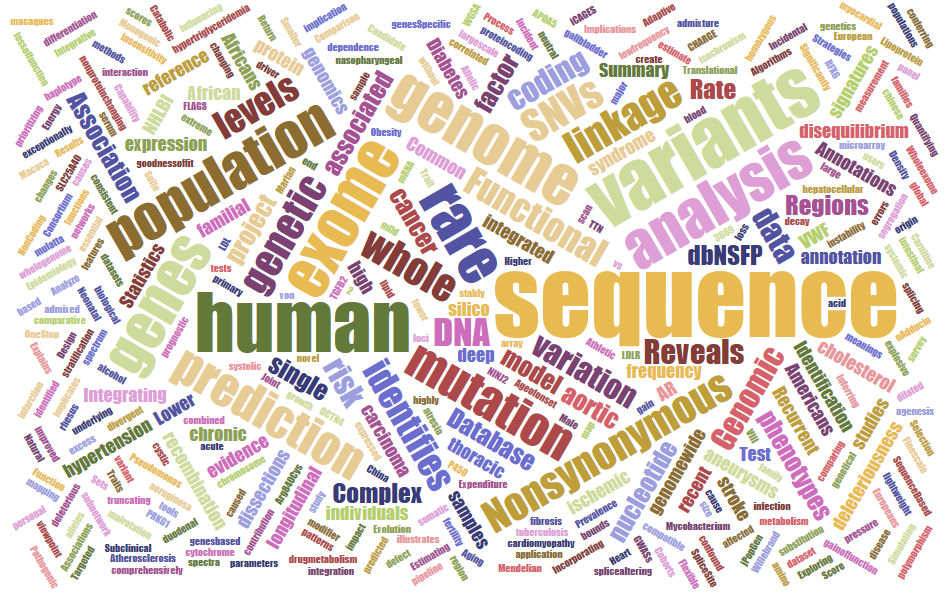My major research interest is understanding the variants observed in human genome. My lab develops novel statistical and computational methods to analyze DNA sequence data from three perspectives: population genetics, computational biology and genetic epidemiology. I am also interested in large-scale sequencing based Mendelian disease study, quantitative genetics of human traits and Darwinian medicine.
Population Genetics |
The polymorphic pattern we observed from DNA sequences was shaped by many different forces, including mutation, recombination, admixture, migration, population structure, population size changes, natural selection, etc. Using DNA sequence data we could do some clever "reverse engineering" and estimate important population parameters, infer demographic history, identify loci under natural selection, etc. As more and more whole genome data are available, new method needs to be developed to be able to analyze data in the whole genome level.
|
Bioinformatics |
With the advance of DNA sequencing technologies, whole exome and even whole genome sequencing become more and more feasible as a research and diagnosis tool for human diseases. Yet our ability of interpreting the huge amount of DNA variants observed has significantly lagged behind our ability to produce data. Using methods from statistics and informatics, we are building models and tools to facilitate the functional prediction of DNA variants.
|
Genetic Epidemiology |
Genetic epidemiology studies the genetic factors contributed to human diseases, especially common diseases. My lab is interested in developing methods to increase the statistic power of identifying genotype-phenotype association by integrating the information and knowledge we obtained from population genetics and computational biology. We are also interested in understanding the relationship between human diseases and human evolution.
|
Office3720 Spectrum Boulevard, Suite 304
Tampa, FL 33612 |
Telephone813-974-9865
|
|
